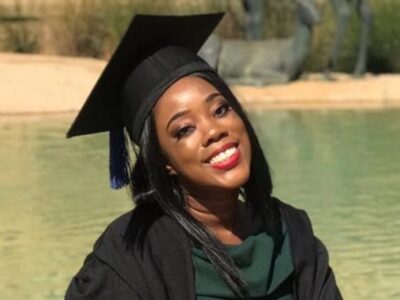What to Expect When You Study an Accounting Course
Accounting is often called the “language of business,” and for good reason. From small start-ups to multinational corporations, every organisation relies on accurate financial information to make informed decisions, comply with regulations, and plan for the future. For students considering a career in this essential field, studying an accounting course opens the door to stability, professional growth, and global opportunities. This is where an accounting qualification, such as MANCOSA’s Bachelor of Commerce in Accounting, comes in. This article will guide you through what to expect when you study an accounting qualification, from choosing the right qualification to the skills you’ll develop and the career opportunities ahead. We’ll also explore MANCOSA’s flexible accounting programmes.

Deciding on your accounting qualification
The accounting profession remains a vital pillar of business, and continues to evolve.
Demand persists and will continue to do so for the foreseeable future despite the rise of artificial intelligence and other significant changes. One of the main reasons is that accounting professionals undergo rigorous training that cannot be replaced.
The training in question involves a range of qualifications. Depending on your exact career goals, you can consider the following accounting courses.
Degree vs certificate: choosing what fits you
Bachelor’s Degree (or Higher)
- Strengths: Almost universally required for professional accounting roles, especially in auditing, compliance, or public practice. A degree meets the baseline and is typically needed for entry as an accountant or auditor.
- Best to consider if: You’re targeting roles in high-level public accounting, international practice, or research. You have ambitions for chartered or academic credentials. Or are seeking robust long-term career development.
Certificate Programmes
- Strengths: Shorter, more focused, often entry-friendly. Certificates can fast-track entry into accounting roles or help bridge into degree programmes later. They’re cost-effective and practical, helpful for career pivots or skill sharpening.
- Best to consider if: You want a quicker, more affordable entry. You’re already working in a related field. Or you’re looking to complete specific units needed for certification (e.g., CPA prerequisites).
6 Things you can expect when studying an accounting course
Studying accounting goes far beyond crunching numbers. Whether you pursue a certificate, diploma, or full degree, an accounting course equips you with technical expertise, professional skills, and real-world readiness. Here are six things you can expect when you start your journey.
1. Comprehensive accounting knowledge
At its core, accounting education gives you a solid grounding in the principles of financial and management accounting.
You’ll learn how to prepare financial statements, analyse budgets, and interpret the numbers behind an organisation’s performance.
Many programmes also introduce international accounting standards (IFRS) to prepare graduates for both local and global career opportunities.
2. Practical and analytical skills
Accounting courses balance theory with practice. You’ll work through case studies, use accounting software, and often simulate real-world scenarios.
By applying calculations and frameworks to practical tasks, you develop analytical skills that help you spot trends, forecast outcomes, and provide decision-making support for businesses.
3. Professional accreditation pathways
One of the most significant advantages of formal accounting studies is that they put you on track for professional accreditation.
For example, in South Africa, a degree with SAICA-accredited modules is required if you plan to become a Chartered Accountant (CA(SA)), while other routes include SAIPA or ACCA membership.
Internationally, many courses are aligned with certifications such as CPA, CMA, or CIMA, giving your qualification global recognition and credibility.
4. Exposure to business law and ethics
Accountants work at the intersection of finance, regulation, and governance. This means your course will likely cover business law, taxation, auditing, and corporate ethics.
Understanding the legal environment ensures that you can operate within compliance frameworks, while ethics training is crucial for upholding trust and integrity in the profession.
5. Problem-solving and critical thinking
Accounting is not just about recording transactions. It’s about interpreting data and solving problems. Expect to tackle scenarios where you must make recommendations, resolve discrepancies, or design financial strategies.
These exercises sharpen your critical thinking and prepare you to handle complex business challenges with confidence.
6. Career preparation and opportunities
Finally, studying accounting is a direct gateway to diverse career opportunities. From corporate finance and auditing to entrepreneurship or even forensic accounting, your studies will help you identify possible career paths.
Many programmes also offer internships or workplace projects, giving you valuable professional exposure before you graduate.
About MANCOSA’s accounting programmes
When it comes to pursuing accounting through distance learning, MANCOSA offers structured pathways that empower learners to balance study with life commitments.
- Higher Certificate in Accounting: A one-year, NQF Level 5 qualification. Delivered fully online in a modular format, with each module spanning approximately five weeks. Blends theory and practice to build foundational accounting knowledge and skills.
- Bachelor of Commerce (BCom) in Accounting: A three-year online undergraduate degree. Covers key subjects, such as financial reporting, auditing, taxation, management accounting, business law, business ethics, financial statement analysis, and managerial finance.
Key features across MANCOSA’s accounting offerings
- Industry-recognised
- Flexible online learning
- Cost-effective and accessible
- Stackable pathways
- Industry-relevant curriculum
FAQs about a career in accounting
What qualifications do I need to become an accountant in South Africa?
To become a professional accountant in South Africa, you typically need a BCom Accounting degree as a foundation.
For those aiming to become a Chartered Accountant (CA(SA)), you must complete an accredited degree, a postgraduate Honours or CTA, a learnership with SAICA, and the professional board exams.
What career opportunities are available with an accounting qualification?
Accounting graduates can pursue careers such as being a bookkeeper, financial accountant, auditor, tax consultant, management accountant, financial analyst, or forensic accountant.
Senior pathways include becoming a Chartered Accountant (CA(SA)) or pursuing leadership roles like Chief Financial Officer (CFO).
How long does it take to qualify as a Chartered Accountant (CA) in South Africa?
Becoming a CA(SA) typically takes 7–8 years. This includes a 3-year undergraduate degree, a 1-year postgraduate qualification (CTA), 3 years of practical training (articles), and passing the two SAICA board exams.
Is accounting a good career choice in South Africa?
Yes, accounting remains one of the most in-demand and stable careers in South Africa. With businesses, government, and NGOs requiring financial expertise, qualified accountants enjoy strong career prospects, competitive salaries, and opportunities to work internationally.
Can I study accounting online in South Africa?
Yes, many universities and colleges in South Africa, like MANCOSA, offer online accounting certificates, BCom Degrees, and Postgraduate programmes.
Online study provides flexibility for working professionals while still preparing students for professional accreditation and career advancement.
Register for a MANCOSA online accounting course
There are several different accounting qualifications to choose from.
If you’re entering the field or looking for a quick upskill, the Higher Certificate offers a fast route. On the other hand, the BCom in Accounting opens up more advanced career opportunities.
If you need help deciding which programme suits your career goals best, you can contact us today.





